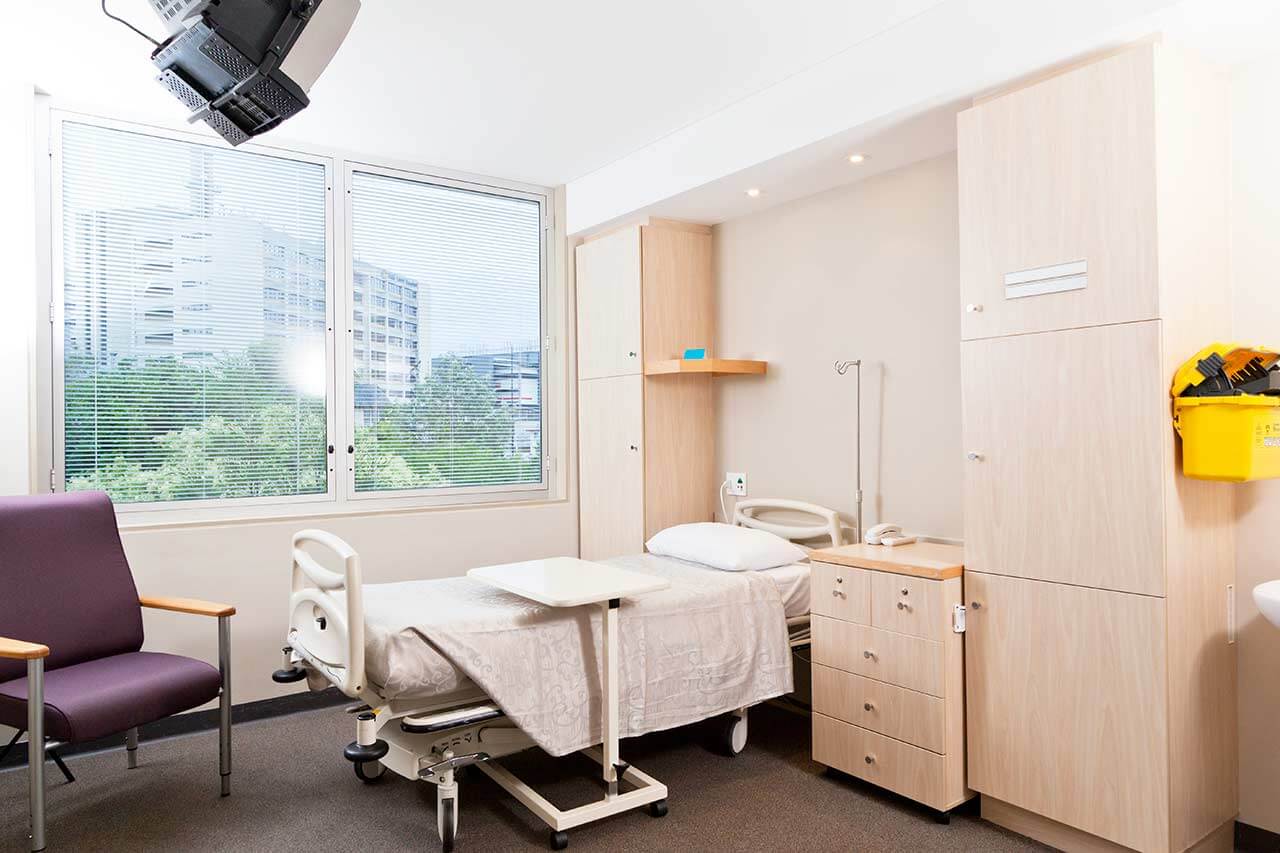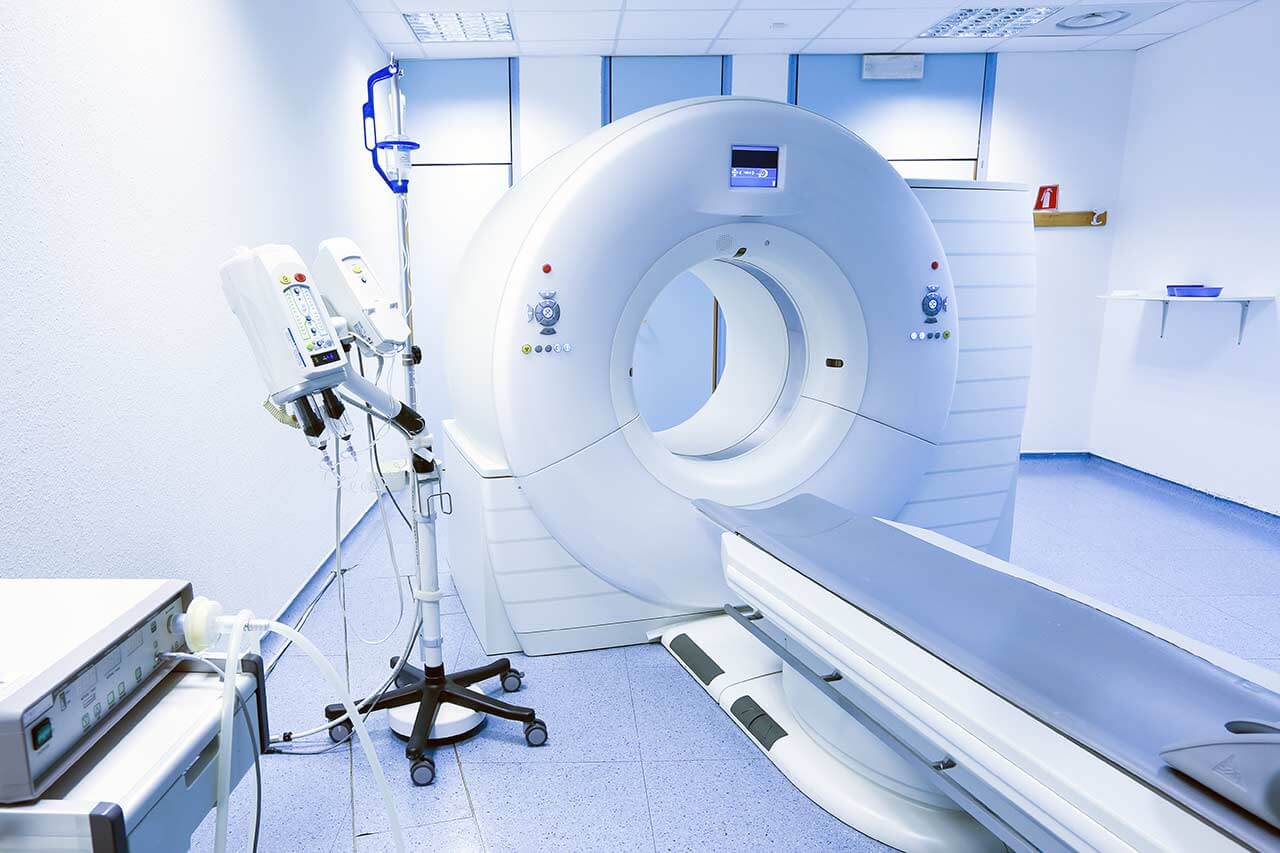
About the Department of Gynecology at Beta Clinic Bonn
The Department of Gynecology at the Beta Clinic Bonn provides all the possibilities of modern medicine for diagnosing and treating diseases of the female reproductive system. The department's doctors pay special attention to counseling patients and performing routine preventive examinations in order to assess the risks of developing a gynecological disease or detect it early. Special consultations are held here for patients with endometriosis and uterine fibroids. The key area of the department's specialization is minimally invasive interventions for benign diseases of the female reproductive system. The department also successfully performs intravaginal laser therapy for vulvar, vaginal, and pelvic floor pathologies. Another integral part of the work of the department's doctors is treatment for urinary incontinence using minimally invasive techniques and injection therapy with fillers and botulinum toxin. Each patient is provided with an individual approach to her clinical case. The department's gynecologists always devote enough time to the patient's comprehensive diagnostics and the study of the results obtained, which allow them to provide the most effective treatment. The department is headed by Dr. med. Daniel Gantert.
The department's primary specialization is minimally invasive interventions for diseases of the female reproductive system. The department regularly performs such interventions as hysteroscopy, hysterectomy, dilation and curettage, endometrial ablation, fallopian tube ligation or removal, and laparoscopic interventions to remove the ovaries, endometriosis foci, uterine fibroids, etc. Minimally invasive interventions are performed using miniature instruments. A surgical approach is provided by small incisions 5-10 mm long or through the vagina. It has been scientifically proven that the results of such low-traumatic interventions are comparable to the results of classical open surgeries. At the same time, minimally invasive operations are characterized by low blood loss, mild pain in the postoperative period, and rapid patient recovery. In addition, the department's gynecologists have already performed thousands of interventions, which attests to the rich experience and high professionalism of the doctors.
The team of the department's gynecologists offers patients the method of intravaginal laser therapy. This type of treatment is non-invasive and performed on an outpatient basis. As a rule, laser therapy is used to treat diseases of the vulva and vagina, as well as some pelvic floor pathologies. For example, the procedure is often prescribed for vaginal dryness, dysmenorrhea, atrophic vaginitis, genitourinary infections, and genital warts. In addition, the procedure is suitable for correcting the reduced tone of the vaginal tissues and eliminating cosmetic problems in the intimate area. Intravaginal laser therapy is performed with an Erbium YAG laser. The specialist begins the laser procedure by inserting a special applicator with a laser into the vaginal wall. After receiving energy from the laser, the vaginal tissues begin to actively regenerate. The procedure may last from several minutes to several hours, depending on its purposes. Patients often experience mild discomfort after the procedure, which persists for the first day. In most cases, women can leave the department and return to their daily activities immediately after the procedure.
The therapeutic options at the medical facility are complemented by the treatment of urinary incontinence in women. The pathology is quite common and causes discomfort because a woman constantly experiences involuntary urination. This may happen in a variety of situations, such as when a woman is coughing, laughing, lifting weights, or playing sports. The main causes of urinary incontinence include natural anatomical changes after childbirth, age-related changes, menopause, obesity, etc. In the early stages, drug therapy, pelvic floor muscle training using the biofeedback method, and pelvic floor muscle electrical stimulation are most often performed. In complex cases of urinary incontinence, the department's specialists successfully perform the following minimally invasive interventions: TVT sling procedures, filler injections, and intravesical Botox injections.
The department specializes in the diagnostics and treatment of the following gynecological diseases:
- Heavy menstrual bleeding
- Uterine bleeding
- Uterine fibroids
- Endometriosis
- Uterine polyps
- Ovarian cysts
- Urinary incontinence
- Recurrent miscarriages
- Intrauterine septa
- Fallopian tube obstruction
- Other gynecological diseases
The department's range of therapeutic services includes:
- Conservative treatment
- Drug therapy
- Intravaginal laser therapy
- Minimally invasive interventions
- Hysteroscopy
- Hysterectomy
- Dilation and curettage
- Endometrial ablation
- Laparoscopic removal of ovarian cysts
- Laparoscopic removal of endometriosis foci
- Adhesiolysis
- Uterine fibroid enucleation
- Adnexectomy
- Fallopian tube ligation or removal for sterilization
- TVT sling procedure
- Filler injections and intravesical Botox injections
- Other medical services
Curriculum vitae
Higher Education and Professional Career
- Medical studies and Doctoral Degree, Ruprecht Karl University of Heidelberg.
- Internship in the Department of Surgery at the University Hospital Geneva, Switzerland.
- Preparation for board certification, Evangelical Hospital Kalk Cologne.
- 2012 Board certification in Gynecology and Obstetrics.
- 2013 - 2017 Senior Physician, Hospital Porz am Rhein Cologne.
- 2017 - 2022 Senior Physician and Head of the Section for Minimally Invasive Surgery in the Department of Gynecology and Obstetrics at the University Hospital Duesseldorf.
- 2022 Head Physician of the Department of Gynecology at the Beta Clinic Bonn.
Research and Educational Career
- Holding basic and advanced courses "Operative hysteroscopy and laparoscopy" according to the recommendations of the Working Group on Gynecological Endoscopy (AGE).
- Holding basic and advanced courses of the Working Group on Urogynecology and Plastic Pelvic Floor Reconstruction (AGUB).
- Co-author of the AWMF-S3 guideline "Avoidance of perioperative hypothermia" as an authorized representative of the German Society for Gynecology and Obstetrics (DGGG).
- Member of the Project Group 2020/2021 of the AWMF-S3 guideline "Diagnosis, treatment, and follow-up monitoring of women with cervical cancer".
- Publication of specialized articles and book chapters.
Certificates
- 2017 MIC II Certificate from the Working Group on Gynecological Endoscopy (successful repeated certification in 2021).
- "Special Qualification in Endometriosis" Certificate, Endometriosis Research Foundation.
Memberships in Professional Societies
- German Society for Gynecology and Obstetrics (DGGG).
- Working Group on Gynecological Endoscopy (AGE) of the German Society for Gynecology and Obstetrics (DGGG).
- European Society for Gynaecological Endoscopy (ESGE).
- Working Group on Urogynecology and Plastic Pelvic Floor Reconstruction (AGUB) of the German Society for Gynecology and Obstetrics (DGGG).
- Lower Rhine-Westphalian Society of Gynecology and Obstetrics (NWGGG).
- German Cancer Society (DKG).
Photo of the doctor: (c) Beta Klinik Service-, Verwaltungs- und Forschungs- GmbH





